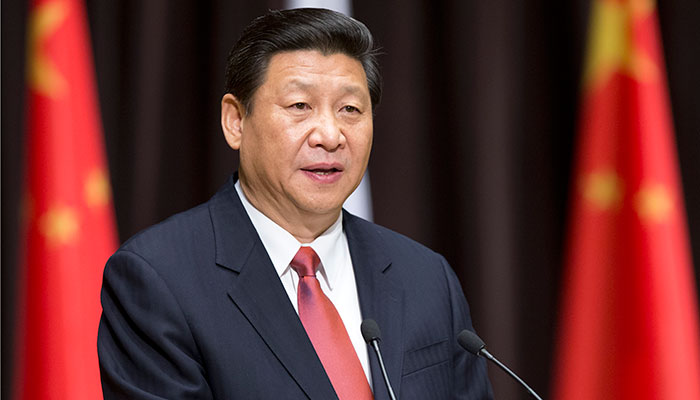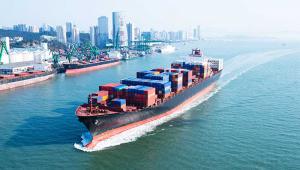In response to the COVID-19 outbreak, Asian governments have embarked on an unprecedented level of fiscal policy interventions in scale and speed and to do “whatever it takes” - a term coined by Mario Draghi, former president of the European Central Bank to indicate his seriousness in solving the eurozone crisis in 2012. The governments have announced radical fiscal policy interventions and promised massive state interventions. The actions are meant to keep the economy buoyant, spend more on healthcare, find vaccines and cures, increase hospital capacity, direct cash transfers to the poor and low-income households, provide stimulus to the healthy part of their respective economies and stop a full-scale assault on the labour market.
South Asian governments of India, Pakistan and Bangladesh have announced measures including the expansion of existing transfer programs that benefit more vulnerable households, as well as mechanisms to support exporting industries. Prime minister Narendra Modi of India announced the allocation of 0.1% of GDP to health infrastructure spending, encouraging state governments to make direct transfers to unorganised construction workers and the creation of a COVID-19 ‘economic taskforce’ to recommend additional fiscal and support measures.
Read more: Coronavirus lockdowns to take 2 percentage points off 2020 growth each month, OECD says
Pakistan’s prime minister Imran Khan announced a PKR 1.2trn (£5.8bn) fiscal stimulus package whilst focusing on the elimination of import duties of emergency health equipment, providing relief to daily wage workers, accelerated procurement of wheat and an immediate transfer of PKR 25bn (£120m) to the National Disaster Management Authority for the purchase of necessary equipment to deal with the pandemic. The government of Bangladesh has increased the allocation for the Open Market Sale programme to ensure adequate food supply for lower-income class households, particularly those dependent on daily wages. Also, the government is in the process of revising the 2020 financial year budget and also plans to declare a support package for different export-oriented industries employing more than four million workers. The Sri Lankan government recently allocated up to 0.1% of GDP for quarantine and other containment measures, as well as 0.01% of GDP to the South Asian Association for Regional Cooperation COVID-19 emergency fund.
The Gulf Cooperation Council oil-rich governments have allocated substantive financial resources in various measures. The UAE government, for instance, made an increased budgetary allocation to the ongoing Ghandan-21 fiscal stimulus programme, reduced government fees, providing additional subsidies and simplifying business procedures. Saudi Arabia introduced a private sector package of 2.7% of its GDP and reduction in non-priority areas of the 2020 budget and the increased financing through its National Development Fund.
Qatar has announced a package of 13% of its GDP that aims to reduce the effects of the pandemic, shoring-up small business and saving hard-hit sectors (hospitality, tourism, retail, commercial complexes, and logistics). Economically vulnerable countries such as Iran and Iraq have reduced low-interest rates on loans and funds to cover employers’ insurance and establishment of a fund by the Iraqi government to collect donations from financial institutions.
The Chinese government is in the process of implementing measures worth 1.2% of GDP, increasing spending on epidemic prevention and control, the production of medical equipment and accelerating the disbursement of unemployment insurance. The fiscal expansionary envelope of the Chinese government is expected to be significantly higher, keeping in mind the recent announcement for higher infrastructure investment and improvements of the national public health emergency management system—and automatic stabilisers.
xi-jinping-shutterstock_132906761.jpg

Chinese president Xi Jinping
The city-state of Singapore recently saw the approval of a supplementary budget with additional measures including the originally announced Care and Support Package, while tripling the support to households, business and offering wage subsidies for directly affected and self-employed people.
The Indonesian government announced two fiscal stimulus measures equivalent to 0.2% of country’s GDP, promising support to the tourism sector, social assistance to low-income households and to fast-track the handling of COVID-19, including budgetary reallocation toward the health sector and the acceleration of the purchase of goods and services for coronavirus prevention and treatment. The Vietnamese government announced measures include increased health spending from the central contingency budget, deferral of land-rental payments for five months and the lowering of the business registration fee for one year and offering preferential tariffs on key items.
“For Asian governments, lessons of recovery from previous epidemics are clear”
The Malaysian government announced a care package on 27 March, including its largest set of economic stimulus measures to date, channeling massive economic resources of $83.6bn towards supporting people and businesses grappling with the impact of the coronavirus pandemic. The South Korean government will spend 0.8% of GDP on healthcare measures, transfers to quarantined households, employment retention support, consumption coupons and emergency family care support. Also, the Korean authorities have introduced VAT reductions for the self-employed and deferred tax payments for small business and those self-employed in affected sectors such as tourism, the arts and hospitality.
In Japan, the government adopted two emergency response packages with a total of 0.1% of its GDP. The packages, like other Asian countries, include measures to mitigate the economic impact and countering the economic slowdown. To support the international response, the Japanese government has pledged additional contributions to the World Health Organisation and other international bodies, including the IMF’s Catastrophe Containment and Relief Trust.
Regardless of the announcement of an unprecedented level of fiscal policy intervention in previous weeks, many poor and middle-income Asian countries continue to witness an increase in public debt and a collapse in government revenues as they struggle to raise health-related spending and imports (to reduce the death toll), promise subsidies and strike a trade-off between saving lives and saving livelihoods.
For Asian governments, lessons of recovery from previous epidemics are clear: subdued health spending and delaying the implementation of aggressive fiscal policy interventions will increase the chance of contagion subsequently putting more lives at risk.















